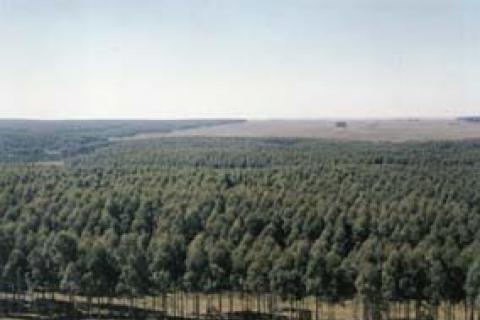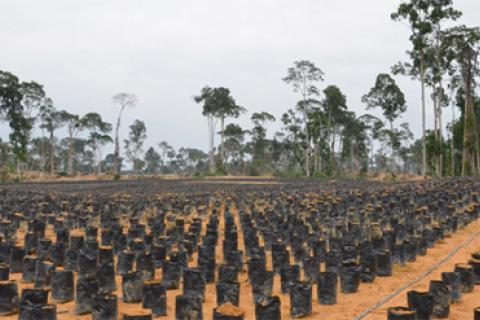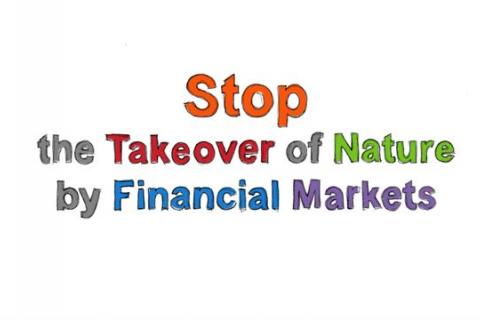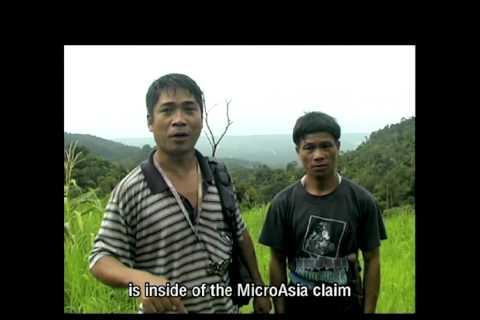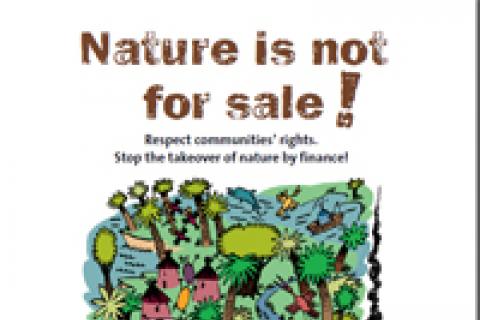Declaration by the Latin American Network Against Monoculture Tree Plantations
September 21, 2012
Other information
ACTION ALERT - GABON
As many countries in Africa, Gabon is facing an alarming rate of expansion of oil palm and rubber plantations. The government has given the Singapore based company Olam 300,000 hectares of land to establish monoculture tree plantations.
The Japanese paper-making company Oji Paper Group runs a paper mill in Nantong, East China, and had plans to build a pipeline for wastewater discharge from the mill. However, in July, thousands of residents in the neighbouring coastal city of Qidong took to the streets in protest amid growing concerns over the pollution the project would cause. They feared that wastewater containing contaminants and toxic matter would be dumped into the sea, polluting the area and killing the local fish stock. The pipeline would discharge around 150,000 tons of wastewater per day.
A short animated film about the takeover of nature by financial markets and the real alternatives coming up from civil society. An initiative of SOMO, European ATTAC Network, Food & Water Europe, Friends of the Earth, Carbon Trade Watch, WEED, Ecologistas en Acción, AITEC and Campagna per la riforma della Banca Mondiale.
Available at
This new report published by Rainforest Foundation Norway and Friends of the Earth Norway documents the political incoherence of the Norwegian government, which spends an annual 500 million US dollars and huge political capital on rainforest protection while investing some 13.7 billion dollars in industries destroying it.
Available at http://www.regnskog.no/languages/english/_attachment/29989?_ts=13660256314
ATM (the Alliance Against Mining), the largest anti-mining network in the Philippines, has issued a press release reporting that President Benigno Aquino III recently signed an Executive Order on mining. The EO focuses on establishing environmental safeguards and the need for a new revenue-sharing scheme, to maximize the country’s profits from mining. It did not mention other concerns of communities, not only in Palawan, but also in other mining-affected areas, such as social impacts and human rights violations.
Six Garifuna´s cooperatives that have recovered their land are facingat this moment the threat of paramilitaries who move around on motorcycles and 4x4 vehicles with heavy weapons and could massacre the Garifuna inhabitants who are resisting the dispossession of their ancestral territories.
The Inter-American Court of Human Rights (IACHR) has ruled in favour of the Sarayaku indigenous people of the Ecuadorian Amazon in the case of Sarayaku v. Ecuador. The ruling, made public on July 25, ends a decade-long legal battle waged by the Sarayaku after a foreign oil company was allowed to encroach on their traditional lands in the early 2000s without their consultation.
A video documentary launched on July 27 by ALDAW, showing the cultural values of Palawan and the encroachment of mining operations in ancestral domains.
frameborder="0" width="640" height="360">
An article that analyzes the law passed in the Brazilian state of Acre in 2010 to create the State System of Incentives for Environmental Services (SISA). The law is considered a model and example for the world; however, it ultimately serves to turn over the state’s natural wealth, including its forests, to the financial speculation market.
A leaflet on the Green Economy and the financialization of nature, published by Friends of the Earth France, ATTAC and AITEC.
Available at http://www.amisdelaterre.org/IMG/pdf/nature_is_not_for_sale.pdf
Members of farmers’ organizations, women’s movements and civil society organizations from South Africa, Zimbabwe, Malawi, Swaziland, Lesotho, the DRC and Mozambique gathered on August 15-16 in Maputo, Mozambique, to analyze the multi-dimensional global crisis and the response of African governments.
